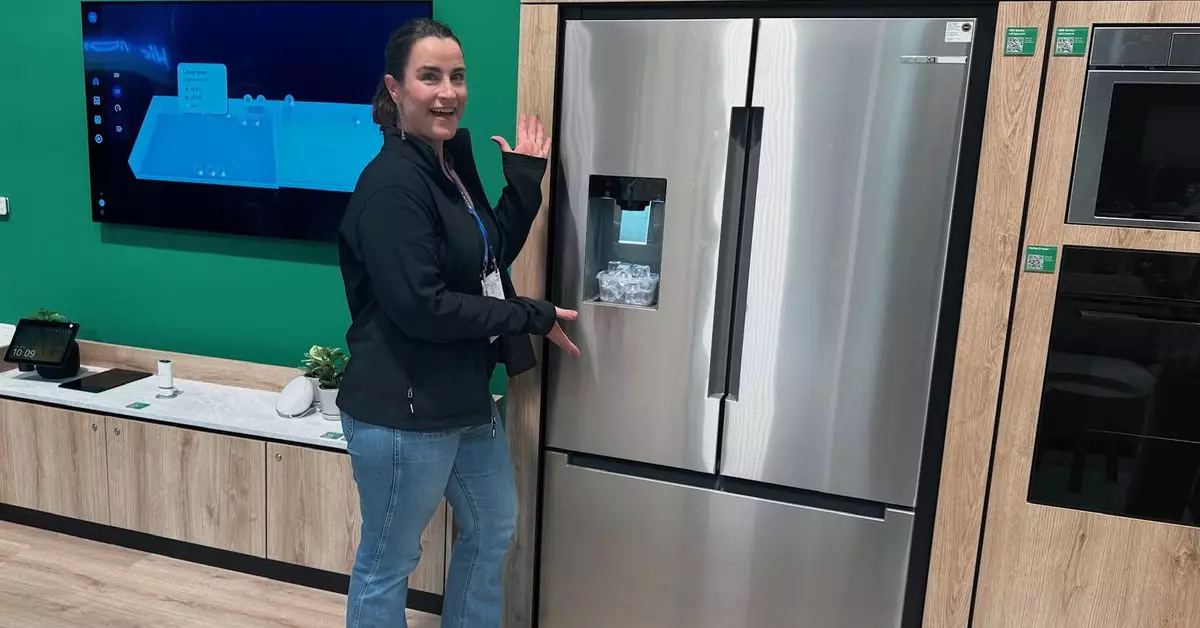The rapid evolution of smart technology has significantly influenced the landscape of home appliances. As more devices connect to the internet and to each other, the focus has turned toward creating a more integrated and efficient home environment. One term that has gained traction in this context is Matter, a revolutionary standard aimed at promoting compatibility among various smart home devices. With this significant shift in technological standards, Bosch has entered the spotlight with the unveiling of its first Matter-enabled appliance, the 100 Series French Door Bottom Mount Refrigerator. This article delves into the features of this groundbreaking refrigerator, implications for the industry, and Bosch’s future plans for Matter integration.
Debuting at CES, the Bosch 100 Series refrigerator represents a notable leap in appliance technology. Priced at $2,500, this refrigerator not only boasts impressive design and functionality but also incorporates Matter support, setting a precedent for future smart appliances. Scheduled to hit the US market in the spring of this year, the 100 Series offers consumers an array of advanced capabilities. Owners can control temperature settings remotely, receive notifications through their preferred smart home platform, and even get alerts if the door is left open—features that are increasingly becoming standard in the smart appliance sector.
What sets this refrigerator apart is its commitment to local connectivity, instilling greater security and speed in its functionalities. Unlike previous models that heavily relied on cloud connections, Matter offers a robust local communication protocol, ensuring that appliances like this refrigerator can function seamlessly within a smart home ecosystem. The integration of Matter signifies a shift toward maximizing efficiency while enhancing user experiences.
Matter emerges as a pivotal player in the realm of smart home standardization, enabling various devices from disparate manufacturers to work together harmoniously. Developed collaboratively by industry giants such as Apple, Amazon, Google, and Samsung, this open-source standard provides a universal language for connected devices. Matter operates over standard wired and wireless protocols including Wi-Fi, Ethernet, and Thread, and supports various device types—from smart lighting to security systems.
For Bosch, embracing Matter means a firm commitment to a future where appliances are not only more smart but also deeply integrated into the fabric of modern living. The company plans to extend Matter support beyond refrigerators to other appliances in its Bosch, Siemens, and Thermador lines, demonstrating a clear roadmap for future developments. The anticipated rollout of energy management capabilities further underscores the potential of these appliances to contribute meaningfully to home energy efficiency initiatives.
While the promise of Matter is exciting, actualizing this vision carries challenges, particularly for existing appliances. Bosch’s Eelco Lammertink acknowledged the hurdles associated with retrofitting existing appliances to support Matter, indicating that it would be too risky to attempt without potentially damaging devices. This reality presents a gap for consumers who invest heavily in older models, as resistance to updating or integrating with new technologies can be a significant barrier.
Moreover, while platforms like Samsung SmartThings and Home Assistant already support Matter, the absence of compatibility with Google Home or Apple Home raises questions about the widespread adoption of this standard. As consumers seek cohesive smart home experiences, this incompatibility might limit Matter’s immediate impact on the market.
Bosch’s introduction of the 100 Series French Door Refrigerator marks a transformative moment for smart appliances, leveraging the power of Matter to redefine connectivity and functionality within the home. As we navigate the evolution of connected devices, the imperative for interoperability becomes clear. The maturity of Matter and its potential promise highlights the future trajectory of appliance development and consumer expectations alike. As Bosch moves forward with its integration plans, the industry is poised for exciting advancements that will ultimately enhance our daily lives through efficient, connected technology.

